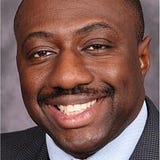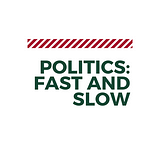Fascism Expert: Don't Expect Trump To Leave WH, If He Loses
Ben Ghiat Says Trump's following 'authoritarian playbook"
Dr. Ruth Ben-Ghiat teaches Italian and History at NYU. Her expertise is "fascism, authoritarianism, war, propaganda, and Donald Trump," according to the college's website. I reached out to her to get her opinions on Trump and America's descent into fascism. This is the conversation.
Otiko: As an expert in fascism, at what stage do you think America is?
Ben-Ghiat: Every authoritarian experience is different, but Trump has now amassed a loyal following, gotten many Americans to hate the press, has control of paramilitary-style forces (CBP, ICE, militias,) and the "right" right-wing men in key positions, like (William) Barr as attorney general. His next step is to secure his election no matter what — fraud, foreign-assisted infrastructural emergencies, voter suppression, martial law. We will see.
Many people who know Trump, like his former lawyer Michael Cohen, don't think he will leave office if he loses. He will likely declare the election fraudulent and refuse to accept the results. Authoritarians will do anything to remain in office, and Trump needs to stay there to keep immunity from prosecution and the corrupt system he has for making dollars off the presidency going. — Dr. Ruth Ben-Ghiat
Otiko: Were you surprised by the rise of Trump and his descent into fascism?
Ben-Ghiat: I have been writing about Trump since fall 2015 to warn Americans that he is following an authoritarian playbook, so nothing has surprised me, no.
Otiko: Trump blew through so many checkpoints. His rise can be blamed on the failures of the media, the legislature, the executive, and the judiciary. Is there one group you blame the most?
Ben-Ghiat: I don't think it's useful to single one group out for blame. Trump is a symptom of a democracy already corroded by GOP voter disenfranchisement, support for white supremacy, and more general structural racism and adrift among voters toward more authoritarian attitudes.
He came along and energized many already formed tendencies, and through charismatic leadership, got a mass following. Certainly, every institution and branch of government helped his rise, and cowardice and denial did their part too.
Otiko: Why does Trump still have supporters at this stage, when he threatened to turn troops on American citizens?

Ben-Ghiat: Historically once people bond to authoritarians, and, for elites, make their deals with him (they support him, seeing him as a vehicle for doing things they have wanted to do for years, as with the
Evangelicals and all those wanting to reverse gender and racial emancipation of the Obama years) they generally stick with these leaders until the bitter end. It takes an economic crisis, losing war or other large event to cause defections.
Otiko: As an expert in fascist regimes, how do you see this ending? Will Trump leave voluntarily if he loses in November?
Ben-Ghiat: Many people who know Trump, like his former lawyer Michael Cohen, don't think he will leave office if he loses. He will likely declare the election fraudulent and refuse to accept the results. Authoritarians will do anything to remain in office, and Trump needs to stay there to keep immunity from prosecution and the corrupt system he has for making dollars off the presidency going.
Politics: Fast and Slow
Cutting through the headlines. Demystifying the future. Creating sensible policy.
WRITTEN BY
Manny Otiko writes about race, politics and sports. He has been published in Salon and LA Weekly. Follow him on Twitter @mannyotiko.
Politics: Fast and Slow
|







No comments:
Post a Comment